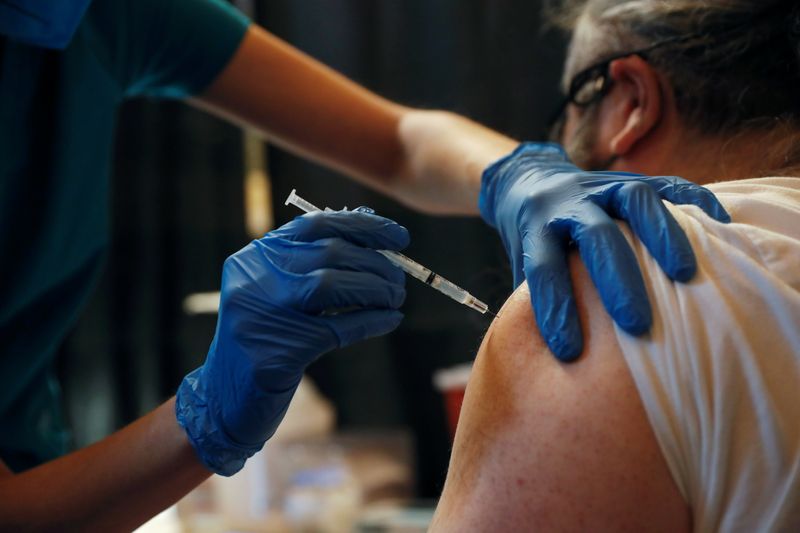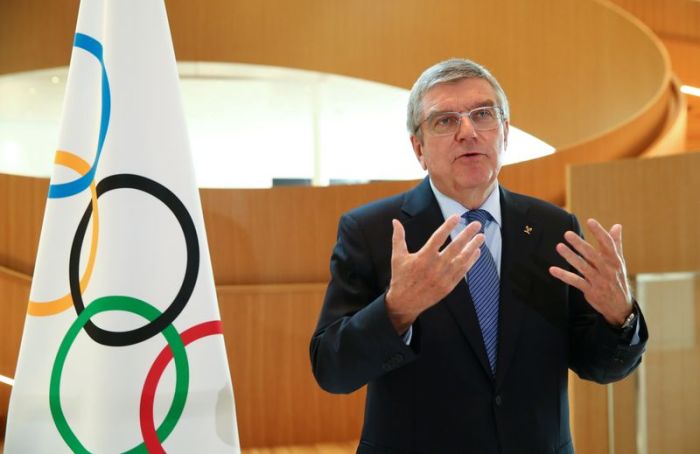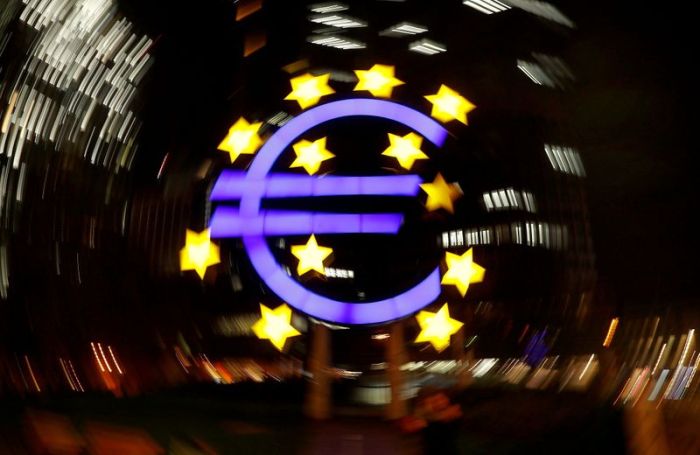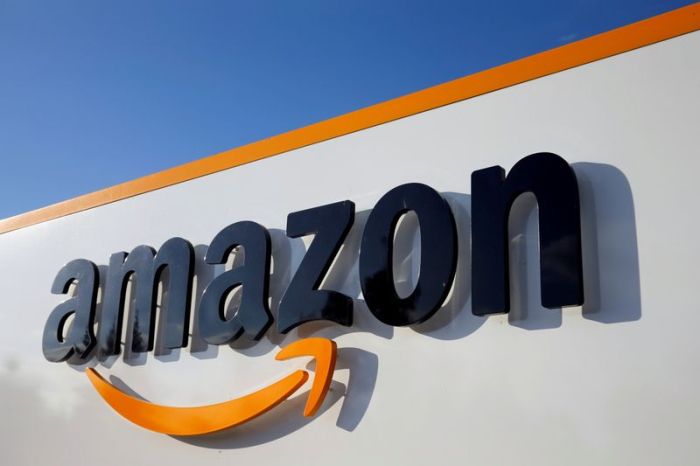By Ankur Banerjee and Michael Erman
(Reuters) -Pfizer Inc and German partner BioNTech SA have filed for full U.S. government approval for their COVID-19 vaccine and are targeting production of 4 billion doses of the shot next year, mostly for low- and middle-income countries.
Full approval for the vaccine, which has been authorized on an emergency basis, could help ease hesitancy to get the shot in the United States and other wealthy countries.
Pfizer also pointed to new, higher manufacturing forecasts as evidence of its ability and intention to serve poorer nations that have received very little of its vaccine so far.
In a letter sent to Pfizer employees and posted publicly, Pfizer Chief Executive Albert Bourla said the company already has deals or is in talks with countries to supply 2.7 billion doses this year, of which 40% are expected to go to middle- and low-income countries.
The supply balance should tip into the less wealthy countries’ favor over the second half of this year, and Pfizer hopes to produce 3 billion doses in 2021.
Bourla sent the letter after the Biden administration backed waiving intellectual property rights on COVID-19 vaccines. The chief executive said the waiver would disrupt the flow of raw materials for the vaccine.
“Entities with little or no experience in manufacturing vaccines are likely to chase the very raw materials we require to scale our production, putting the safety and security of all at risk,” Bourla wrote.
The Pfizer-BioNTech vaccine was the first to be authorized for emergency use in the United States in December, based on two months of safety data for a 44,000-person clinical trial.
Under an emergency use authorization (EUA), the U.S. Food and Drug Administration (FDA) makes a product available to the public during an emergency https://www.fda.gov/consumers/consumer-updates/understanding-regulatory-terminology-potential-preventions-and-treatments-covid-19 based on the best available evidence, without waiting for all the evidence needed for full approval or clearance.
The lack of full approval has been a concern in the anti-vaccine community, a matter of growing importance as the United States must begin persuading people to get inoculated, having satisfied much of the early demand.
Approval would also allow the companies to market the vaccine directly to people more than 16 years old as well as help corporations and government agencies looking to require vaccinations for employees.
The FDA will set a date for a decision once the application is formally accepted for review, Pfizer and BioNTech said.
The companies plan to submit data to support the so-called biologic license application on a rolling basis over the next few weeks.
Pfizer stock closed up on Friday 1% at $39.58 a share and BioNTech’s U.S. shares ended up 9% at $183.71.
Vaccines from Moderna and Johnson & Johnson have also been cleared for emergency use in the United States since the Pfizer/BioNTech shot got its EUA. Moderna said on Thursday it plans to begin seeking full U.S. approval this month.
President Joe Biden has announced a goal of vaccinating at least 70% of U.S. adults with at least one shot by the Fourth of July. As of Friday, over 57% of adults in the United States had gotten at least a dose.
Nearly 170 million doses of Pfizer-BioNTech’s vaccine have been distributed around the United States, with roughly 134 million shots administered as of Thursday, according to the U.S. Centers for Disease Control and Prevention (CDC).
Pfizer and BioNTech had in April said their vaccine was around 91% effective in preventing COVID-19, pointing to data on more than 12,000 people fully inoculated for at least six months – positioning them to seek U.S. approval.
(Reporting by Ankur Banerjee in Bengaluru, additional reporting by Mrinalika Roy; Editing by Shinjini Ganguli, Arun Koyyur and Jonathan Oatis)

























